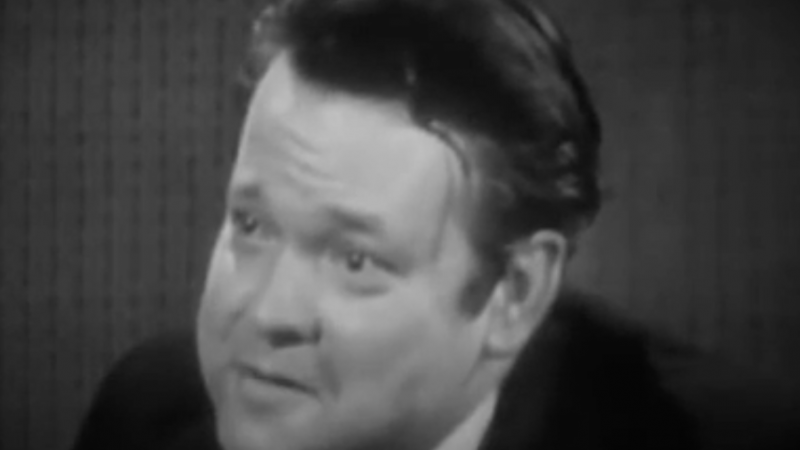Orson Welles Defends the Freedom to Publish Gruesome Horror Comics
Friday A/V Club: A flimmaker fights a moral panic.

For this year's Halloween edition of the Friday A/V Club, here's Orson Welles in the mid-1950s, a time of moral panic over horror comics, sticking up for the cartoonists' freedom of speech:
Welles doesn't come across as a fan of the comics—he criticizes some of them on artistic grounds—and while he rejects the idea that they're encouraging juvenile delinquency, he concedes that actual "psychotics" might get some ideas from them. But when he's asked if he thinks they should be censored, he gives a firm no:
Q: Would you prohibit horror comics?
A: I wouldn't prohibit anything. I'm very much against censorship.
Q: Even for children?
A: That's a very difficult question. But you see, I don't think children were ever hurt by Grimm. And I remember that the end of "Snow White" in Grimm—the real end, not the Disney one—is when the witch is given red-hot iron shoes to dance in until she dies. Everybody's terribly happy about it, and I don't think it made any delinquents out of them.
The filmmaker also notes the violence in some classic works of literature. When one of his interlocutors objects that in those stories "virtue triumphs, whereas in the horror comics it doesn't," Welles interjects: "Well, it doesn't in Edgar Allan Poe either, you know?"
Welles wasn't always so absolutist about opposing censorship—11 years before this, he called for "laws against peddling race hate." Maybe he mentally excluded that category when he said he "wouldn't prohibit anything." Or maybe he grew to be more of a civil libertarian with age.
(This interview took place on the TV show Press Conference; for the full conversation, go here and then here. Other editions of the Friday A/V Club featuring Orson Welles can be found here and here. Other Halloween editions can be found here, here, here, and here.)


Show Comments (10)